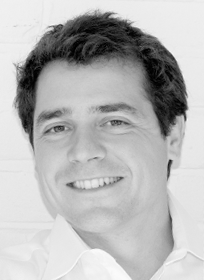by Hugo Shephard @ Role Models

The media has been full of articles and programmes about various aspects of humans’ impact on the environment and recently, of how young people are beginning to take a real interest in this problem. They are increasingly aware that the world they are inheriting is at risk of complete collapse and the recent demonstrations that paralysed parts of central London are just one example of this growing concern.
Clearly, we all agree with the principle of saving the planet, and we are all equally concerned about the problem, so I was very surprised by an article this week on the #iwill website, a charity that supports social action initiatives for people aged 10 to 20. The article was based on a survey about volunteering, asking how many young people take part in volunteering activities (71%) and how many of these are environmentally focused (26%).
The interesting part of the article for me was not so much the number of young people that participate, but the next analysis that was carried out, which focused on the motivation behind the participation. The aim of the charity was to understand how best to make participating in volunteering activities more appealing to young people. Here is where I was shocked to read that the main motivation for young people was “maximising the benefits (for themselves) of taking part” and that they are “prepared to shop around for the most rewarding … options”. It goes further to say that young people are “motivated by a desire to develop skills, confidence and knowledge which can support their academic and career paths”. Lastly, one of the things that they all declared they really wanted out of their volunteering opportunity was “Celebration and achievement, e.g. celebration events and offering certificates”.
This surprised me as I have always thought of volunteering as a selfless activity focused on doing things for the benefit of others, where the only possible reward is to feel good about oneself for having done it, irrespective of what other people think or recognise us for.
I believe in teaching children to be resilient and interact with each other effectively so that they can be masters of their emotions and strong enough to make tough decisions. This allows them to work towards a common goal together, not because this will get them a reward, but because they want to do what is right. It is a shame that even charities with the best intentions are falling into the trap of constantly trying to make life easier for young people, suggesting to them that even when doing good deeds, the focus should be on what is best for them rather than what is best for others. This strengthens a growing sense of entitlement and egotism which will make these youngsters a lot less resilient and risks to turn them into less happy, unfulfilled adults.

To counteract this tendency, it is important to teach children from a young age to think more independently, to stretch themselves out of their comfort zone in order to get better, and whatever it is they decide to do, to take risks and be resilient in the face of failure. They need to learn to lead not by force but by inclusion, by listening to what others have to say and being able to find the best way forward by taking the best ideas from all. We believe that in this way we can create a new generation of young people who will be able to find happiness and reward in what they do without the need for constant praise and approval. They will lead happier lives and take care of the world in a meaningful and selfless way, undoubtedly with better results.

Find out more |
Role Models help children fly by giving them the skills they need to grow, develop and thrive in a changing world because they believe that children should be skilled for life as well as being schooled in the classroom.
To do this, they offer individual creative childcare to support children’s passions. They also provide courses that give children some of the key skills to succeed in the 21st century; leadership, resilience, teamwork and creative problem-solving. They approach everything in a way that’s serious fun. Click here to learn more.


